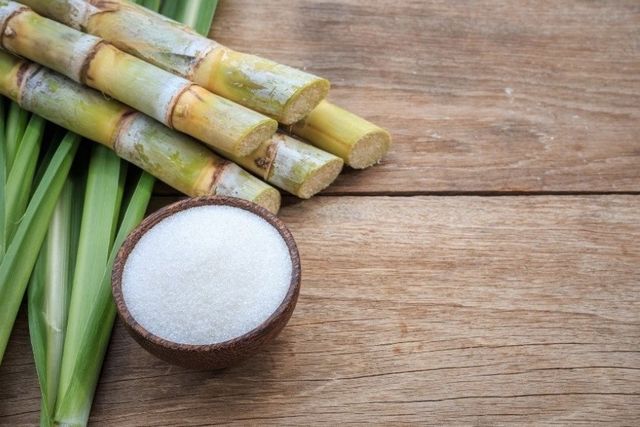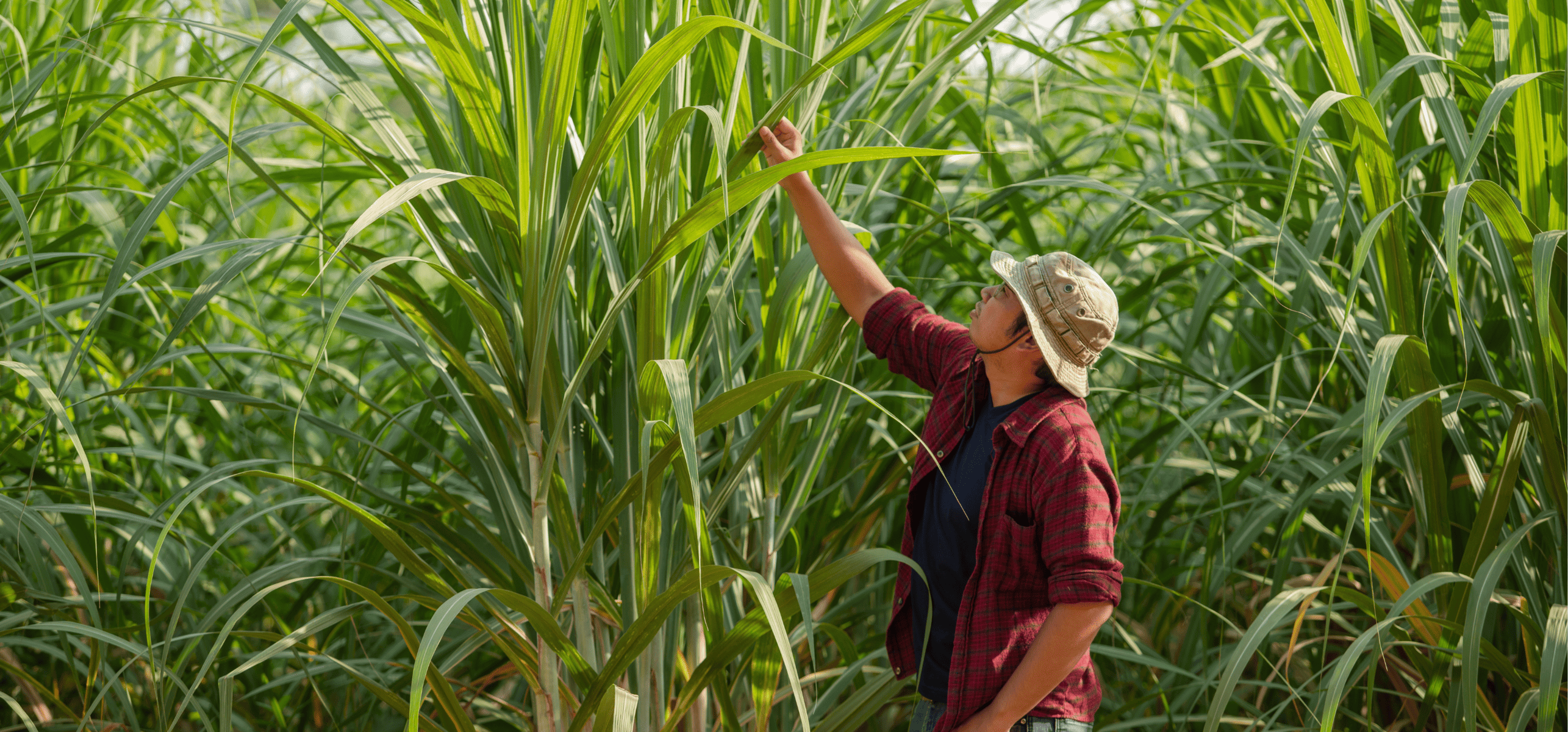Discovering Sugarcane Products: Versatile Profits and makes use of
The exploration of sugarcane products discloses an exceptional variety of applications that extend well past the familiar realm of sugar. As we take a look at the diverse contributions of sugarcane, one could question how these varied uses can reshape sectors and way of lives in a rapidly advancing world.
Overview of Sugarcane
Although sugarcane is usually connected largely with sugar production, it is a versatile plant with a rich background and various applications. Grown in subtropical and exotic regions, sugarcane grows in well-drained dirts and warm environments, contributing dramatically to numerous economies worldwide. This seasonal grass, coming from the genus Saccharum, can grow to elevations of as much as 4 meters, showcasing its durable nature.
Beyond its main duty in sugar extraction, sugarcane works as an important resource for various spin-offs. The fibrous residue, referred to as bagasse, is utilized for creating bioenergy and as a basic material for producing paper and eco-friendly products. Furthermore, molasses, a byproduct of sugar refining, is rich in nutrients and typically utilized in pet feed and fermentation procedures.
Sugarcane likewise plays a substantial function in typical medications and social practices in a number of regions, illustrating its relevance past business use (sugarcane product). With the enhancing focus on sustainable farming methods, sugarcane is being checked out for its capacity in biofuels and carbon capture, positioning it as a key player in the shift towards renewable energy resources. Hence, the flexibility of sugarcane extends much past the confines of sugar manufacturing
Sugarcane in Food Products


Beyond sugar, sugarcane is the source of energy-rich items such as jaggery and panela, which are conventional raw sugars utilized in several cultures. These products not just sweeten foods but additionally impart one-of-a-kind flavors and dietary benefits.
Sugarcane juice, a rejuvenating drink enjoyed in several tropical regions, showcases the plant's versatility. It is typically consumed fresh or fermented right into alcohols like rum.
Furthermore, sugarcane fibers, referred to as bagasse, are often made use of to create food product packaging products, stressing the environmental advantages of sugarcane handling. Overall, sugarcane's contribution to food items is multifaceted, enhancing tastes, giving nutritional value, and playing a considerable duty in cooking traditions all over the world.
Industrial Applications of Sugarcane
In different sectors, the versatility of sugarcane prolongs much past its cooking applications. Sugarcane works as an essential raw material in the manufacturing of biofuels, specifically ethanol, which is significantly used as a renewable resource resource. This biofuel is acquired via fermentation and purification procedures, providing a sustainable alternative to fossil fuels and adding to a reduction in greenhouse gas discharges.

Furthermore, the sugarcane industry has found applications in pharmaceuticals, where its parts are made use of in the solution of numerous medical products. The natural compounds removed from sugarcane show antioxidant and antimicrobial properties, boosting the efficiency of specific medicines.
Lastly, sugarcane is integral to the production of a variety of chemicals, consisting of glycerol and organic acids, which are vital for numerous commercial processes. These applications highlight sugarcane's considerable function in promoting commercial sustainability and development.
Ecological Advantages of Sugarcane
The multifaceted applications of sugarcane not just boost industrial processes yet likewise contribute dramatically to ecological sustainability. As a renewable energy, sugarcane growing plays an important role in carbon sequestration, taking in substantial quantities of carbon dioxide from the atmosphere. This procedure helps minimize climate adjustment by minimizing greenhouse gas concentrations.
Additionally, sugarcane byproducts, such as bagasse and molasses, supply environment-friendly alternatives to standard materials. Bagasse, the coarse residue after juice removal, can be utilized as a biomass fuel, reducing reliance on fossil gas and promoting cleaner power sources. Furthermore, molasses can be transformed into bioethanol, further sustaining sustainable power initiatives.
Sugarcane farming likewise advertises biodiversity and soil health and wellness. Lasting farming practices, such as intercropping and plant turning, enhance dirt fertility and reduce erosion. The crop's deep origin system help in water retention, thereby improving and supporting regional environments pop over to this web-site strength versus drought.
Health Advantages of Sugarcane
Rich in necessary nutrients and all-natural sugars, sugarcane uses countless health advantages that make it an important addition to a balanced diet plan. Its high fiber material aids in food digestion, advertising digestive tract health and wellness and protecting against irregularity. Furthermore, sugarcane gives antioxidants, which fight oxidative tension and may minimize the risk of chronic illness.
Additionally, sugarcane juice is understood for its hydrating residential properties, making it a superb drink option, particularly in hot climates. The all-natural sugars existing in sugarcane supply a quick energy increase, helpful for professional athletes and those taken Learn More part in physical activities. It also has essential nutrients, such as vitamin C, magnesium, calcium, and potassium, which add to general wellness.
Researches suggest get redirected here that sugarcane might aid manage blood sugar level degrees, making it a more suitable sweetener for people with diabetic issues when eaten in small amounts. Its anti-inflammatory residential properties can support liver wellness and aid in detoxing.
Conclusion
In verdict, sugarcane emerges as a very flexible plant with considerable payments to different industries. Its varied applications in food, commercial uses, and ecological sustainability underscore its value. The by-products of sugarcane, such as bagasse and molasses, assist in environmentally friendly techniques, while its health advantages enhance overall health. The multifaceted nature of sugarcane not only sustains economic growth however also promotes lasting growth, highlighting its value in contemporary culture.
Although sugarcane is commonly linked primarily with sugar production, it is a flexible plant with an abundant background and numerous applications.Beyond its primary function in sugar extraction, sugarcane offers as a crucial resource for numerous byproducts. Largely understood for creating sugar, sugarcane is transformed right into granulated sugar, brownish sugar, and molasses, each serving distinct cooking objectives.Rich in essential nutrients and natural sugars, sugarcane offers various health and wellness advantages that make it a useful addition to a balanced diet plan. The natural sugars present in sugarcane provide a quick power increase, valuable for professional athletes and those involved in physical tasks.